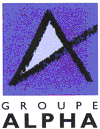 |
|
Welcome to issue no. 1 / 2007 of EWC News. 11 April 2007
|
|
The
training and consultancy network "euro-workscouncil.net"
EWC
News appears four times a year.
You can find past issues in the newsletter archives.
|
|
1.
Plant competition as a
challenge for the EWC
|
|
The aircraft manufacturer, Airbus, the most important division of the EADS group, has not yet come to a halt. With the program "Power8", costs amounting to billions will be cut, even though the company’s books are full of orders. Administrative costs are supposed to be reduced by 30 per cent, the production tightened up and distributed around the plants more efficiently. Part of the production will go to companies outside the group and a number of sites will be sold to investors. These plans were triggered off by a delay in supplies to the wide-body aircraft A 380.
The European works council was informed about the program "Power8" on 28th February 2007. On the previous day the EADS coordination group of the European Metalworkers’ Federation (EMF) in Brussels had decided on a catalogue of demands. After the announcement of the Power8 program by the employer, IG Metall also formulated its demands in the "Varel Declaration". In anticipation of the EWC meeting in Toulouse on 14th March 2007, trade unions had prepared more than 100 questions for central management. These were not all answered. The management gave the impression of holding a monologue rather than a discussion with the workers' representatives, as the French trade union, Force Ouvrière (FO), said in a press release after the meeting.
International solidarity at Airbus wasn't automatic. The FO trade union, which has strong support in the workforce (winning 47% of the votes at the works council elections in Toulouse), published a report in January 2007, according to which French locations are more efficient and more economic than all other plants in Europe. Rüdiger Lütjen, chairman of the Airbus Germany group works council, called this study "impertinence", rejecting its contents completely. German plants would be at least as productive as French ones - if not more productive from time to time. The following documents are only available in German:
What does the EADS Group workers' representatives’ cooperation look like in practice? There are several European division works councils for the different divisions within the holding (e.g. for Airbus). The chairperson of the EWC for EADS as a whole, Gérard Patot (photo), comes from the helicopter production of Eurocopter in the Marignane plant near Marseilles. He is a member of the trade union FO and heads the European division works council Eurocopter. Kathleen Kollewe has interviewed him about his experiences for EWC News.
Workers' representatives of Siemens and Nokia from Germany, Finland, France, Belgium, Spain and Austria met at the European Metalworkers’ Federation (EMF) in Brussels on 14 February 2007. Although the merger of the network divisions took place on 1st April 2007, the works councils didn’t get any reliable figures or financial documents from management in order to be able to form an opinion about the consequences. 10 - 15 % of the 60,000 workers of this joint venture are to be cut. In a press release the management was criticized for its lack of transparency. There isn't a European works council for Nokia Siemens Networks (NSN) till now yet, at present the coordination committee of the EMF is representing workers' interests.
After the takeover of the Italian bank BNL (Banca Nazionale del Lavoro), with 17,000 workers, by BNP Paribas, the European works council of the French bank finds itself confronted with a renegotiation of its EWC agreement. More than the distribution of mandates will come under scrutiny. The more important question regards the position workers' representatives take regarding the staff cuts, resulting from the merger, which is currently taking place in Italy, Spain and Luxembourg. In an extraordinary meeting on 20th February 2007, the EWC was informed about the plans for the first time. There have been intense bilateral contacts between the trade unions CGT (France) and CGIL (Italy) in the past however they were unable to develop a Europe-wide perspective for the current negotiations of a social compensation plan.
Basic agreement for RWE Energy
The central management of the French pharmaceutical company has recently agreed to hold negotiations on employment training, the social consequences of restructuring and the integration of seriously disabled persons with the European works council. A working group consisting of members of both parties will meet for the first time on 19th April 2007 to agree on the exact procedure. The question at issue is, whether the negotiations should be conducted by the EWC steering committee or by a trade union coordination committee. The formation of such a committee, parallel to the already existing structures of the EWC, is already common practice in many companies of the metal industry.
Priority on the strengthening of the European Works Councils In the face of the wave of cross-border restructuring that is currently to be observed, the European Metalworkers' Federation (EMF) sees one of its main tasks to organize solidarity within multinational companies. After the first conference on company policy in November 2006 in Brussels, it has now presented its position. The most important point is the strengthening of the European works councils.
|
|
2.
What EWC work after a
merger?
|
|
An EWC agreement was signed for the Italian bank UniCredit on 26th January 2007. The reason for the negotiations was that, after the buying up of HVB Group (Hypovereinsbank and Bank Austria Creditanstalt), a UniCredit's EWC only existed in Germany, not in Italy. The new EWC represents 145,000 workers across Europe, not only in EU countries but also in Switzerland, Croatia, Bosnia, Serbia, San Marino, Turkey, Russia, and the Ukraine. The bank has the most workers in Italy, Poland and Germany. UniCredit's EWC receives far-reaching participation rights which go beyond information and consultation and are comparable with the regulations recently agreed on for the Allianz insurance company. The agreement provides for two regular meetings per year and up to two extra sessions for exceptional circumstances. The steering committee of six members, who should come from four different countries in the EWC, can set up working groups on relevant subjects and reach agreements on these with central management. The subjects expressly mentioned, are in-company training, equal opportunities, antidiscrimination and occupational health and safety. Negotiation of new EWC agreement for Arcelor Mittal After the takeover of Arcelor by Mittal the two European works councils were soon united as well. The third round of negotiations took place on the subject of a new EWC agreement in Brussels on 19th and 20th March 2007. The principles of social dialogue, developed at Arcelor will be transferred to ArcelorMittal, according to the works councils' wishes. Provided that this is guaranteed, the only remaining contentious issue with central management would be the number of delegates in the new EWC. The workers' representatives want to enlarge it from its current 48 members to 72; and the steering committee from 16 to 25 members. Central management refuses. The fourth round of negotiations will take place in the Northern Spanish city of Avilés on 17th and 18th April 2007. ArcelorMittal management representatives from all over the world met with experts of the International Labour Organization (ILO) in Turin to discuss possible legal consequences of a worldwide framework agreement on 3rd and 4th April 2007. Shortly before the buy-up by Mittal, Arcelor completed such a framework agreement with the trade unions in September 2005.
After the sale of the Swiss insurance company, Winterthur, by Crédit Suisse to the French insurance group Axa in December 2006, Axa's EWC decided to integrate ten workers' representatives of Winterthur into its future ranks. Nine of them belonged to the EWC of Crédit Suisse before. Neither the employer nor the Axa EWC secretary considered it to be necessary to negotiate a new EWC agreement for the time being. This means that the European works council of Axa has grown from 51 on 61 members. It will hold its next meeting in Berlin in June 2007. Even before the sale the secretary of the EWC of Crédit Suisse had taken part in the meetings of the EWC steering committee of Axa as a permanent guest to ease integration. Since the year 2005 Axa has held basic principles concerning the social dialogue on restructuring of this type. |
|
3. European
Works Councils take legal action
|
|
Actually the decision should have already been made on 3rd April 2007 but the French court, called by the European works council, adjourned until 27th April 2007. Several hundred workers, some of them from abroad, had arrived in Paris by bus in order to witness the decision from the proximity of the courtroom. The court has to decide whether the central management had sufficiently complied with obligations, concerning the information and consultation of the "European Committee for Information and Dialogue" (ECID) - so the official name of the EWC - on the subject of a restructuring plan.
The French group Alcatel (58,000 employees) and the U.S. company Lucent Technologies (30,000 employees), a former section of AT&T, had merged on 1st December 2006. With its headquarters in Paris, the new transatlantic group has become a worldwide leading manufacturer of telephone and internet technology. Due to this merger 12,500 jobs are now on the list of cuts. In Germany in particular, the plants in Stuttgart and Nuremberg are threatened.
Following numerous local protests in the countries concerned (France, Germany, Spain, Italy, the Netherlands, Belgium), the European works council called for a protest day. About 4,500 people from several countries took part in the demonstration in Paris on 15th March 2007. During the period, leading up to this protest day, central management had threatened to switch off the intranet pages of the EWC to withdraw the electronic platform for such protests.
Spy found in interpreter's cubicle
Employer's legal position
Prior to the merger the workers' representatives of both enterprises had tried to negotiate a new EWC agreement. They were however unsuccessful due to resistance on the management side. This means that the former Alcatel agreement remains valid in the merged company.
In the current legal proceedings, the group's central management's position is that the ECID is merely a committee for social dialogue and not a fully fledged European works council. They are not entitled to the information and consultation rights of an EWC, according to EWC Directive, because the committee was established in 1996 on a "voluntary" basis before the national EWC laws came into effect. Such agreements actually still benefit from special protection according to article 13 of the EWC Directive.
Possible consequences of the verdict
In this context the forthcoming decision of the French court is of considerable significance to all enterprises that completed a "voluntary" EWC agreement before the deadline in September 1996. According to the calculations of the European Trade Union Institute, this applies to about 430 companies, including almost all well-known big companies (many of them on the German stock market, DAX). Should the court in Paris favour the trade union position, undreamt-of possibilities for the improvement of the EWC's weak participation rights would arise in these enterprises, without even a revision of the EWC Directive.
Declaration of the EWC agreement as invalid
A court of appeal declared the former agreement invalid on 12th October 2006. The complaint had been launched by the trade union, CGT, because it felt itself to be disadvantaged in the naming of delegates for the EWC. The judges decided that the agreement on the formation of a "European Committee for Social Dialogue" had been reached correctly, according to article 13 of the EWC Directive, but not correctly extended later on. The CGT, one of the signatories of the agreement, hadn't agreed to the extension. This court decision in actuality means that every trade union in Europe can prevent the continuation of the validity of an article 13 agreement, provided that it was originally one of the signatories. A comparable agreement is currently being negotiated at the labour court in Stuttgart, Germany. The prosecutor is the works council of Stilke station bookshops in Hamburg in this case. Stilke is a subsidiary of the Swiss Valora group.
The Vaxholm (or Laval) case in ECJ
|
|
4.
Employers consider legal proceedings to be a risk
|
|
A decision, made by a French court, which can definitely be regarded as a milestone in terms of jurisdiction on the EWC Directive, was passed as early as November 2006. The European works council of Gaz de France could hinder the planned merger with Suez, using a last-minute injunction. While the decision in the main proceedings has yet to be made by the highest French court of appeal (a decision cannot be expected in the short term), other European works councils are already referring to this verdict.
On 8th February 2007 the steering committee of Thomson EWC decided to take legal action. The French electrical company wants to close down in Luxembourg and the UK and shift its DVD production centres to Poland. The information and consultation rights of the European works council, which central management and EWC had agreed upon in May 2006, in an appendix to the EWC agreement, were not respected. The EWC secretary (= spokesman on the workers' side) was also denied access to both plants.
After the decision the management agreed to pay a financial analysis for the EWC and temporarily stopped the measures in the two countries. The EWC is seeking to establish minimum social standards which would become a component in a redundancy scheme in the plants concerned.
Michelin management gives way at the last minute
From a German perspective, in the face of a lack of co-determination right, this kind of EWC demand needs quite to be explained. Prof. Kotthoff's study, which we have repeatedly referred to in EWC News, presents a typical French EWC meeting:
Employer lobby recommends risk assessment
The employers' friendly London consultancy and lobby office "European Study Group" has recently published an article under the title "European Works Councils flex their muscles". It claims that trade unions abuse European works councils, to get employers into difficulty. After a number of years of peace and harmony, they now allegedly influence multinational companies' decisions with European works councils, through the courts. This would supposedly be a new strategy because they were unsuccessful in revising the EWC Directive at the European Commission. It is followed by an advertisement for the author: Personnel managers should practise risk estimation, with expert advice in order to avoid being the next victim of such trade union strategies.
On their part, trade unions regard the statement of "European Study Group" as a call to breach the EWC Directive. |
|
5.
Minimum
social standards agreed
|
|
6. Newly
founded SEs
|
|
Negotiations under way in Fresenius
BASF also wants to become an SE
The employers' side would obviously like to achieve a reduction of the supervisory board from 20 to 12 members. This question played a role also during the negotiations in the insurance group Allianz as well as in Fresenius. The European works council, which has been in existence since 1995 (official name: BASF Euro Dialogue), is soon to be replaced by a Europe-wide SE works council which fulfils the trade unions' wish for much more extensive rights. The BASF dialogue forum was a pioneer of the early phase of European works councils but is in many ways no longer up-to-date: It can for example only meet once a year. Conrad Electronic registers as SE The German retailer, Conrad Electronic, has been signed up as a European company (SE) since 18th August 2006. Though the 2,300 workers don't send any representative to the supervisory board, their interests are looked after by the finance committee of the German group works council. Elcoteq intends to transfer its headquarters to Luxembourg The electronics company Elcoteq, based in Finland, was one of the first enterprises Europe-wide to adopt the legal form of an SE on 1st October 2005. The central management has now announced the transfer of its head office to Luxembourg on 1st January 2008 in order to improve its globalisation strategy and to increase competitiveness. This will not have effects on the participation agreement. |
|
7.
European Works
Councils in the service sector
|
|
The service sector is the most important economic sector in the European single market, after the metal industry, with regard to the number of companies which fall under the EWC Directive. While the production sectors of metal and chemistry have already managed to found more than 40% of all European works councils Europe-wide, the service sector takes the last place, of all sectors, with 24%, according to the calculations of the European Trade Union Institute. In June 2005 the EWC Directive applied to 595 service companies, there were 148 European works councils in 143 firms. This number should be a little higher by now. About half of all EWC bodies have already been in existence since the mid nineties.
While the remaining enterprises in the metal and chemistry industry without an EWC prove to have a small number of staff, there still a considerable number of larger companies without an EWC is in the service sector. British and Swedish service companies have been faster at founding EWCs than those from Germany or France. Another unusual feature: European works councils in the service sector are confronted with mergers more frequently than in any other economic sector.
New coordinator of EWC work
At present UNI is supporting 172 existing and emerging European works councils:
UNI's web page:
Banks complete first EWC agreements in Cyprus South Cyprus has been part of the EU and therefore fallen within the scope of the EWC Directive since 1st May 2004. However only 65 of the 2,204 enterprises, which fall within the scope of the EWC Directive, are represented with a branch office in the Mediterranean island. 33 of these had already founded an EWC by June 2005. The first two EWC agreements, signed in Cypriot enterprises were with Marfin Popular Bank and Bank of Cyprus in February 2007. Both agreements go beyond the minimum standards of the EWC Directive and also include branch offices in Greece and the UK as well as in Cyprus. The negotiations were above all conducted by the Cypriot bank workers trade union (ETYK).
Further sector-specific reports in past issues of EWC News (only in German):
|
|
8. Czechia: New Labour Code and
EWC work
|
|
Trade union density is about 30%; a similar number of workers are covered by collective agreements. This means that the grey area of unregulated workplaces is substantially larger than in many Western European countries. The Czech trade union confederation ČMKOS organizes about 600,000 members in 33 federations. There are also smaller trade unions but they are relatively insignificant in comparison with ČMKOS. A new labour code, which came into effect in Czechia on 1st January 2007, have brought about some changes. We have compiled some documents here which can help to understand Czech labour laws:
The Czech model of workers' representation Czech Republic has only known trade union workers' representation, founded by at least just three people, since its transition to the market economy. To make a workers' representation in accordance with EU standards possible for enterprises without trade union, a regulation concerning the founding of "works councils" was included in the labour code of 2001. Accordingly a works council may be founded on request of a third of the workforce, on the condition that there isn't any trade union representation in the company already. It is to be dissolved automatically if a trade union workers' representation is founded later on. This solution, now described as the "Czech Model", didn't exist in any other European country before. According to the law, works councils have fewer rights than a trade union representatives' committee. If an active works council operation develops in a company without a trade union, it can serve as an incentive for the transformation of the works council into a trade union representatives' committee. European Works Councils in Czechia As the other countries joining the EU, the EWC Directive came into effect on the day of Czechia's admission to EU, that is on 1st May 2004. Of 2,204 enterprises Europe-wide which could potentially set up a European works council, 636 are represented by a branch office in Czechia (according to the calculations of the European Trade Union Institute in June 2005). This number is more or less comparable with Denmark or Ireland. Amongst the new EU member countries, Czechia ranks third place after Poland and Hungary. However only eight of these 636 enterprises have their headquarters on Czech soil. So the national economy is in the hands of foreign groups which frequently use the country as an "extended workbench" of the European single market. As many as 231 of the 636 enterprises are German. Almost the half of all enterprises with locations in Czechia had already founded an EWC in June 2005. These 333 councils are now to be enlarged to include delegates from Czechia. A study in the year 2003 shows that at that time over 50 delegates from Czechia were already involved in various EWC bodies, half of them in the metal industry.
An EWC agreement was signed for the electricity company, ČEZ, in Prague on 3rd April 2007. It is the first European works council in a Czech enterprise and the first case for an EWC agreement that exclusively covers into new EU countries. The EWC represents 25,000 workers in Czechia, Poland, Romania and Bulgaria. It consists of 23 members. Seven of them are in the steering committee. The information and consultation rights of the new EWC are considerably more extensive than the minimum regulations of the EWC Directive. Guide to EWC foundation in eastern European languages In the context of a project sponsored by the EU, the Slovenian trade union federation ZSSS prepared a guide for the foundation of European works councils for workers' representatives from the new EU member states in June 2006. It is available in Czech, Polish, Slovenian and French. Previous country specials in EWC News (only in German):
|
|
9. EWC
research
|
|
Since January 2006 a research project on European works councils in Austria is running at the Institute for Society and Social Policy at Linz University. EWC members, trade union secretaries and management representatives are interviewed in twelve groups. Similar to the German study by Prof. Kotthoff the Linz researchers identified several models. They have investigated the role of central management and classified into types. We present from now some selected results:
"Market Efficiency and Workers' Participation Rights" - this is the title of a research project launched at the Institute for Economic Sociology at University of Vienna in cooperation with the Viennese Research and Advice Centre of the Working World (FORBA) and the Warwick Business School (UK) in September 2006. Researchers want to find out whether multinational enterprises, with their headquarters in Western Europe, transfer their social policies to their subsidiaries in central and Eastern Europe. Or do they perhaps choose locations in central and East European countries because trade unions have fewer rights and works councils are hardly known there? The following documents are only available in German: |
|
10. Interesting
web pages
|
|
European labour law from a British perspective
EWC with its own web page
The European works council of the tourism group, Club Méd, has put an exemplary home page onto the Internet. It presents its work in five languages (amongst these English and French) under its official name "European Social Dialog Comittee". You can read discussions with central management in EWC meetings: e. g. questions and answers on the group's strategy plan; works agreements from various countries and press releases can be downloaded. Statistical evaluation of EWC agreements
General Motors workers' blog
We have collected numerous other interesting links.
|
|
11. New
publications
|
|
Dictionaries for the works council
Christiane Horstenkamp
Jacques Bister/Marcel Mansfeld/Christine Parkin Wortschatz für die Gewerkschaftsarbeit Deutsch - Französisch, Französisch - Deutsch Saarbrücken 2006, 100 pages, € 10.19 → Download dictionary → Order dictionary
There can't be two other countries in Europe where the workers` participation rights differ so greatly as between Germany and Britain. This thesis attempts a legal comparison of the similarities and differences and how EU norms on worker participation in the face of mass redundancies have been put into practice in each particular country. Remember that Major's conservative government suffered a sensitive defeat in Luxembourg in front of the European Court of Justice (ECJ) in 1994 because it hadn't integrated the relevant EU standards into the British legal system comprehensively. Information about the current legal position was published in the country special about UK in EWC News, September 2005. The thesis is only available in German.
Melanie Buhlinger Mitbestimmung bei Massenentlassungen auf Grund von Rationalisierungsmaßnahmen in Deutschland und England Eine Untersuchung zur Notwendigkeit und zu Möglichkeiten einer Modernisierung der betrieblichen Mitbestimmung, Baden-Baden 2007, 246 pages, ISBN 978-3-8329-2534-5, € 48.- → Further details → Order online
This thesis examines the implementation of the EWC Directive under German, Austrian and Swedish labour law. The author deals in particular with the question of how a European works council can gain its participation rights, using temporary injunction as well as correction and discontinuance claim, according to each respective national labour law. The current continuing revolution in the field of high court law, in conformity with the Directive, is also described clearly in this work. As the revision of the EWC Directive in Brussels is not progressing at present, it is particularly important for the EWC to exploit all legal possibilities already in existence. The book is only available in German.
Lars
Hinrichs Frankfurt am Main 2007, 335 pages, ISBN 978-3-631-56148-5, € 59.70 → Further details → Order online
Commentaries on the German antidiscrimination law
In the mean time the four antidiscrimination Directives have been implemented in most EU countries - in Germany since August 2006. As a subject introduced at European level, it offers European works councils the chance to be active on the subject of equal opportunities and antidiscrimination (see the Areva case in EWC News 4/2006). Two commentaries have recently been published in German.
Dagmar Schiek (ed.) Allgemeines Gleichbehandlungsgesetz (AGG) Ein Kommentar aus europäischer Perspektive München 2007, 552 pages, ISBN 978-3-935808-70-5, € 89.-
Däubler's and Bertzbach's commentary also goes into the European perspective. 60 opening pages describe the influence of community law on the AGG and the history of the four EU Directives. Furthermore it also examines discrimination bans under international law. It is a little more practice-oriented than Schiek's work however the former is especially convincing with its consistent European stand point.
Wolfgang Däubler/Martin Bertzbach (ed.) Allgemeines Gleichbehandlungsgesetz Handkommentar Baden-Baden 2007, 785 pages, ISBN 3-8329-1384-7, € 89.-
|
|
12. Training
and consultancy network "euro-workscouncil.net":
Examples of our work
|
|
Difficult EWC assignment on joint venture
The transport federation of the Italian trade union confederation CGIL wants to found a European works council for the Contship Italia Group. The enterprise from Genoa is a subsidiary of Hamburg's Eurokai group and Bremen's Eurogate. The latter is in turn a joint venture (50%, 50%) of Eurokai and the BLG Logistics Group. The enterprises involved operate numerous container terminals on the North Sea coast and in Mediterranean and Atlantic areas.
The possibilities of setting up an EWC in a such difficult legal situation was the subject of an international workshop which took place in the Croatian harbour resort, Rijeka, from 2nd to 4th February 2007. The training and consultancy network "euro-workscouncil.net" have drawn up a paper for discussion on this subject in collaboration with the labour law expert, Prof Dr Ulrich Zachert of University of Hamburg.
From 6 to 9 February 2007, a meeting was held in Berlin for air traffic control works council members to familiarise themselves with the effects of the forthcoming internationalisation. One of the topics prepared by the training and consultancy network "euro-workscouncil.net" dealt with the legal basis for worker participation in Belgium, the Netherlands, Luxembourg, France and Switzerland.
A European works council is to be founded for workers of Drägerwerk AG (about 6,500 in total). They manufacture medicine and security equipment in Germany, UK, Netherlands, France, Spain, Italy, Belgium and Sweden. Dräger is one of the few remaining enterprises of this size in IG Metall's coastal region without an EWC. The meeting to found a Special Negotiation Body (SNB) took place with the support of the training and consultancy network "euro-workscouncil.net" at the group headquarters in Lübeck (Germany) on 26th February 2007.
There has been a European works council at American Standard since 2001. It met for its annual meeting in Brussels from 5th to 9th March 2007. The main subject was the pending reorganisation of the group. This questions the EWC's future existence. Before the decision of the group's central management in USA, Dr Werner Altmeyer and Dr Heiner Köhnen of the training and consultancy network "euro-workscouncil.net" were requested to organise a three-day EWC workshop. In the face of the current developments, the contents of this workshop became rather explosive.
Presumably all three divisions were meeting for the last time. The air conditioner division, Trane, will be kept; the brakes and vehicle regulation systems area, Wabco, is to be put on to the stock exchange; the division bathrooms & kitchens, Ideal Standard, sold to another group. This means that in future the workers' representatives will find themselves in three different European works councils once more. While at Trane the EWC agreement with American Standard remain valid, at Wabco a Special Negotiation Body (SNB) will be formed to negotiate a new EWC agreement. The workers' representatives of Ideal Standard are to be incorporated into the EWC of the enterprise that buys it, provided that it already has an EWC.
EWC advisers work together more closely
Our publishing activities
Two contributions appeared in January 2007. Under the title "European Works Councils act instead of waiting for the legislator", Werner Altmeyer analyses some recently completed EWC agreements in the magazine Arbeitsrecht im Betrieb. The contribution "The representation of workers' interests in France. Vive la France?" was published by Werner Altmeyer and Christian Dufour in the magazine der betriebsrat. Both articles are only available in German.
French publications
We sent out a French abstract of EWC News again on 12th February 2007 and a contribution, which deals with challenges of restructuring to European works councils, was published in the magazine Confrontations Europe.
Please find a list of additional publications in English on our publications page.
|
|
13. Details
of seminars planned
|
|
Registration for the following seminars and workshops that we have co-designed can now be made:
Europe for trade union officers of IG Metall Institutions, European Works Councils and related politics 08. -- 10-10-2007 in Bad Orb
Works council activities in Europe, the Euro Works Council (EWC) Legal basis, foundation, intercultural communication 04. -- 09-11-2007 in Hamburg → Further details about this seminar (in German)
In-house events Please find a survey of the subjects of in-house events here: → Subjects of In-house seminars → Subjects for in-house lectures
|
|
14. Imprint
|
EWC
News is published by: Training
and consultancy
network " euro-workscouncil.net " Von-der-Tann-Str.
4, D-20259
Hamburg www.euro-workscouncil.net
(English) www.euro-ce.org
(French) Authors
collaborating on this issue: Werner
Altmeyer, Heiner Köhnen, Kathleen Kollewe, Reingard Zimmer
Distributor
of the German version: 7,960 readers Distributor of the
English version: 870 readers Distributor of the
French version: 495 readers Newsletter
archive: www.ewc-news.com
We
are always pleased to receive comments and suggestions in relation to
this newsletter as well as reports on your EWC activities. Please write
us at: info@euro-workscouncil.net
www.euro-betriebsrat.de (German)
 EADS
in crisis?
EADS
in crisis?

 Interview
with the EWC chairman
Interview
with the EWC chairman
 BNP Paribas informs EWC very late
BNP Paribas informs EWC very late The
European works council and the central management of RWE Energy signed
a basic agreement concerning the handling of restructurings in Dortmund
on 14th March 2007. The agreement is valid in Germany, Czechia,
Hungary, Poland, Slovakia, Austria and the Netherlands. It is based on
the EWC agreement of 2005. There isn't one European works council for
the entire group but separate committees in each division.
The
European works council and the central management of RWE Energy signed
a basic agreement concerning the handling of restructurings in Dortmund
on 14th March 2007. The agreement is valid in Germany, Czechia,
Hungary, Poland, Slovakia, Austria and the Netherlands. It is based on
the EWC agreement of 2005. There isn't one European works council for
the entire group but separate committees in each division.
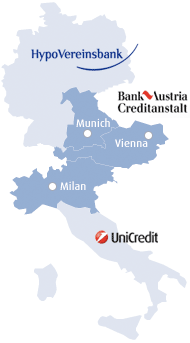

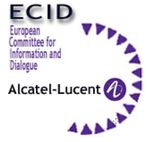 Important court decision for
Alcatel-Lucent expected
Important court decision for
Alcatel-Lucent expected

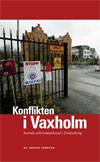
 Thomson EWC threatens legal proceedings
Thomson EWC threatens legal proceedings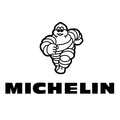
 Pan-European Social Charter at Generali
Pan-European Social Charter at Generali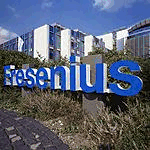



 Czech
Republic has been an EU member since 1st May 2004. With 10 m.
inhabitants, the country is larger than Austria. Czechia has a long
industrial tradition however many enterprises have been sold to foreign
investors over the last few years. Today the subsidiaries of foreign
groups are responsible for half of all industrial production, about a
third of employment in industry and about 70% of exports.
Czech
Republic has been an EU member since 1st May 2004. With 10 m.
inhabitants, the country is larger than Austria. Czechia has a long
industrial tradition however many enterprises have been sold to foreign
investors over the last few years. Today the subsidiaries of foreign
groups are responsible for half of all industrial production, about a
third of employment in industry and about 70% of exports.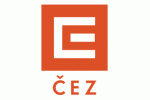 The first EWC foundation in a
Czech company
The first EWC foundation in a
Czech company
 Hand in hand with the works
council to Eastern Europe?
Hand in hand with the works
council to Eastern Europe? The
legal group, Thompsons Solicitors founded in London in 1921, plays an
important role in the legal representation of workers organized in
trade unions and trade union officers in the UK. Its 800 workers in 22
branch offices are not just concerned with individual but also with
collective labour law. It has published a magazine of its own since
1996, which is freely accessible in the Internet: Thompsons
Labour and European Law Review.
The
legal group, Thompsons Solicitors founded in London in 1921, plays an
important role in the legal representation of workers organized in
trade unions and trade union officers in the UK. Its 800 workers in 22
branch offices are not just concerned with individual but also with
collective labour law. It has published a magazine of its own since
1996, which is freely accessible in the Internet: Thompsons
Labour and European Law Review.
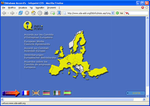


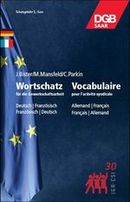
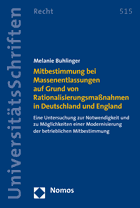
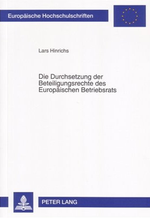
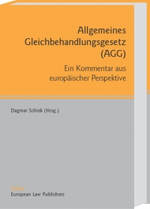
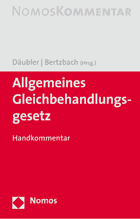
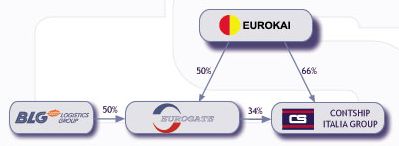

 Drägerwerk AG founds EWC
Drägerwerk AG founds EWC
